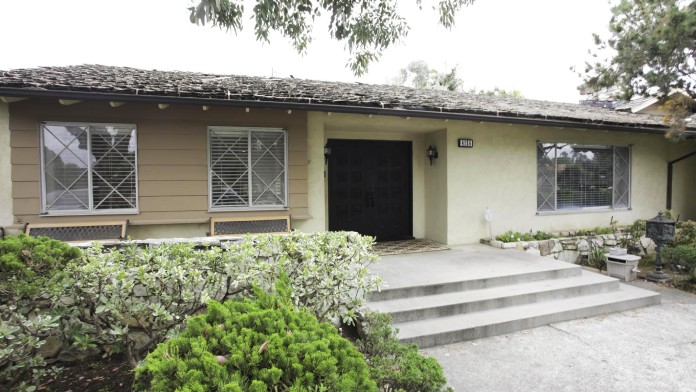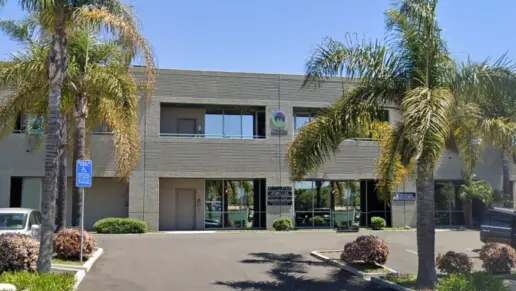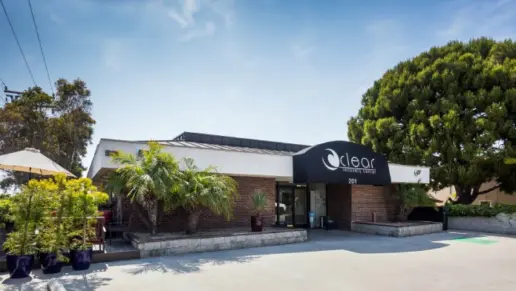About Center for Discovery Lakewood
Center for Discovery - Lakewood is a drug rehab and facility located in Lakewood, California. The center offers treatment for alcohol and substance addictions, eating disorders, and co-occurring mental and behavioral health disorders. Center for Discovery provides residential inpatient treatment, a partial hospitalization program (PHP), an intensive outpatient program (IOP), dual diagnosis treatment, case management, and aftercare. Treatment is available for adults, young adults, teenagers, and children 10 years and older. Specialized programs are available for gender-specific groups and Veterans. Telehealth is available. Programs may be available in English, Spanish, Arabic, Chinese, Dutch, French, Italian, Portuguese, and Russian.
At Center for Discovery, inpatient clients undergo a personalized evaluation and receive a customized treatment plan. Programs include group and individual counseling for 5-6 hours per day, nutrition education, relapse-prevention strategies, and life-skills development. Treatment methods include cognitive behavioral therapy (CBT) and dialectical behavioral therapy (DBT) models. Case management teams are available 24/7. Up to 24 clients can stay at the facility at any time, including gender-specific and age-specific housing.
Partial hospitalization treatment takes place 6-7 hours per day, 5-6 days per week. Clients undergo counseling, family therapy, medication and nutrition management, and education to prevent relapse. PHP can be adult or adolescent-oriented and can include snacks with meal supervision. The PHP is available only during the day.
Center for Discovery’s intensive outpatient program hosts 3-hour sessions, 3-6 days per week. Clients receive group and individual counseling, peer support, snacks with meal supervision, and life-skills development to support their daily routines. Evening and weekend programs are available.
Center for Discovery provides aftercare through its Discovery app. The app allows clients and families to network with case management teams, track their progress, and participate in updates and webinars. Alumni events are also provided. Center for Discovery may make referrals to outside facilities for specialized care.
Center for Discovery – Lakewood is certified by the California Department of Health Care Services.
Center for Discovery – Lakewood is in-network with many insurance providers, including Beacon, Blue Shield, Cigna, First Choice Health, Humana, Kaiser Permanente, Magellan Health, Sharp, and Wellpoint. The center also works with county and federal agencies, such as Indian Health Services. Self-pay and financing options are also available. Please check with your insurance provider for specific details concerning out-of-network coverage.
Latest Reviews
Rehab Score
Gallery

Location
Accepted Insurance
















Other Forms of Payment
Self-pay involves paying for treatment out of your own pocket. You can use savings or credit, get a personal loan, or receive help from family and friends to fund your treatment. If you don't have insurance or your insurance plan doesn't cover a specific program, self-pay can help ensure you still get the care you need.
Private insurance refers to any kind of healthcare coverage that isn't from the state or federal government. This includes individual and family plans offered by an employer or purchased from the Insurance Marketplace. Every plan will have different requirements and out of pocket costs so be sure to get the full details before you start treatment.
Military members, veterans, and eligible dependents have access to specific insurance programs that help them get the care they need. TRICARE and VA insurance can help you access low cost or no cost addiction and mental health treatment. Programs that accept military insurance often have targeted treatment focused on the unique challenges military members, veterans, and their families face.
Addiction Treatments
Levels of Care
Treatments
Mental health rehabs focus on helping individuals recover from mental illnesses like bipolar disorder, clinical depression, anxiety disorders, schizophrenia, and more. Mental health professionals at these facilities are trained to understand and treat mental health issues, both in individual and group settings.
Clinical Services
Cognitive Behavioral Therapy (CBT) is a therapy modality that focuses on the relationship between one's thoughts, feelings, and behaviors. It is used to establish and allow for healthy responses to thoughts and feelings (instead of unhealthy responses, like using drugs or alcohol). CBT has been proven effective for recovering addicts of all kinds, and is used to strengthen a patient's own self-awareness and ability to self-regulate. CBT allows individuals to monitor their own emotional state, become more adept at communicating with others, and manage stress without needing to engage in substance abuse.
Creativity is inherently healing, and can help those in recovery express thoughts or feelings they might not otherwise be able to. Creative arts therapy can include music, poetry/writing, painting, sculpting, dance, theater, sandplay, and more. Unlike traditional art, the final product matters far less than the experience of creation and expression itself.
Dialectical Behavior Therapy (DBT) is a modified form of Cognitive Behavioral Therapy (CBT), a treatment designed to help people understand and ultimately affect the relationship between their thoughts, feelings, and behaviors. DBT is often used for individuals who struggle with self-harm behaviors, such as self-mutilation (cutting) and suicidal thoughts, urges, or attempts. It has been proven clinically effective for those who struggle with out-of-control emotions and mental health illnesses like Borderline Personality Disorder.
Eating disorders include anorexia, bulimia, binge eating, and dysfunctional eating patterns. Many psychologists and other mental health professionals consider eating disorders to be food addictions, meaning food is being used in an addictive way (similar to drug or alcohol addiction). Certain substance abuse treatment programs will have treatment for eating disorders as one of the services offered. An eating disorder may also present as a co-occuring disorder or dual diagnosis alongside drug and alcohol addiction.
Experiential therapy is a form of therapy in which clients are encouraged to surface and work through subconscious issues by engaging in real-time experiences. Experiential therapy departs from traditional talk therapy by involving the body, and having clients engage in activities, movements, and physical and emotional expression. This can involve role-play or using props (which can include other people). Experiential therapy can help people process trauma, memories, and emotion quickly, deeply, and in a lasting fashion, leading to substantial and impactful healing.
Amenities
-
Yoga Studio
Accreditations

The Joint Commission, formerly known as JCAHO, is a nonprofit organization that accredits rehab organizations and programs. Founded in 1951, the Joint Commision's mission is to improve the quality of patient care and demonstrating the quality of patient care.
Joint Commission Accreditation: Yes
Contact Information
4136 Ann Arbor Road
Lakewood, CA 90712















